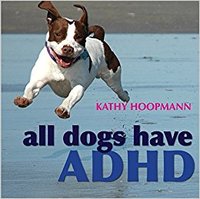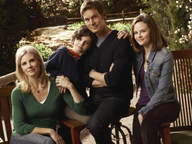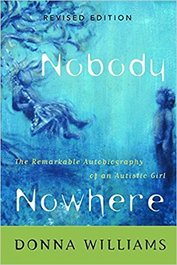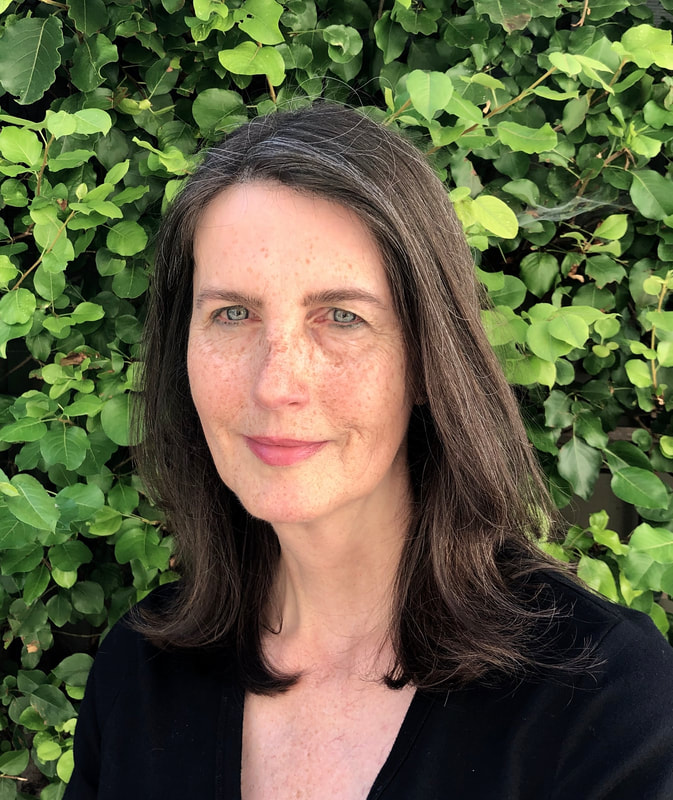 Many parents worry about labeling their child, stigmatizing them, or excusing behavior problems, if they tell their child that he or she has a diagnosis of Asperger’s, autism, or ADHD. I’ve found just the opposite. Kids know that they are getting in trouble in school, they know that other kids seem to have an easier time with following the rules or making friends, but without knowing about their own diagnosis, they just think that they’re bad or stupid. To me, that seems so unfair! I firmly believe that parents should tell their kids, in an age appropriate way, of course, about their diagnosis, and the strengths and difficulties that go along with that diagnosis. Books are a great way to enhance a conversation about your child’s diagnosis. For kids with ADHD, All Dogs Have ADHD, by Kathy Hoopman is a fun and positive option. The book is a simple read, with cute pictures of dogs, and nicely presented, non-judging comments about behaviors and symptoms. Problems are presented realistically, such as social issues or difficulties with following directions, but the book also presents the energy and fun that can make kids with ADHD such a joy to be with.  The NBC show Parenthood has brought increasing attention to the diagnosis of Asperger’s, with one of the show’s characters, Max Braverman, newly diagnosed with Asperger’s. With a large, multigenerational cast about many family members, Asperger’s is not the focus of the show, but just one storyline. I like that aspect, because it’s so realistic; the family copes with Asperger’s, its treatment, symptoms and behaviors, but life doesn’t stop. Work continues, other family members have their own needs, the parents have a relationship that includes dealing Asperger’s, but other aspects as well. One recent episode, Team Braverman, focused on the family’s participation in an autism fundraiser. An interesting aspect was that the episode raised the question of when to tell a child about his own diagnosis, something which clients ask me frequently. In the show, Max’s parents asked their vaguely defined diagnosing professional, Dr Pelikan, about what to tell their son. His advice was that there is no one answer, but it was important not to “burden him with information he’s not going to be able to process.” and “when it’s time to talk to him about it, you’re going to know: Max is going to tell you.” The parents later state that this advice is not very helpful, and not very comforting. At the end of the episode, Max asks what I view as the perfect opening question for a discussion of his diagnosis: “Why we did we give the money (we raised) to autism? There are lots of other charities.” Dad Adam looks thoughtful, but passes on the opportunity to have a meaningful discussion about his son’s diagnosis, instead commenting on the trophy. I agree that children need an age appropriate explanation, but in my experience, kids never seem to find this information a “burden”, instead it’s typically a relief, because they’re aware that their behavior and relationships aren’t like those of other kids. I also agree that kids ask questions when they want to have more information, but they may be subtle questions. Just like with other difficult discussions, parents, like Adam Braverman, can easily miss the cues if they’re not comfortable having the discussion. Shows like Parenthood can be so valuable because they allow parents a bit of practice time to think about these issues before confronting them in their own families. If you missed it, Team Braverman, season 1, episode 12, which aired May 18, 2010, is available online.  The joy of reading is how it allows us all to experience the world from within another’s perspective. When an autobiography is authentic and genuine, the reader can immerse in the writer’s reality. Nobody Nowhere: The Extraordinary Autobiography of an Autistic, by Donna Williams, is one of those books. Alternately engaging and informative, as well as confusing and disturbing, Nobody Nowhere pulls its readers into Donna Williams’ world. Published in 1992, the book is certainly out of date in some ways, particularly the more technical aspects surrounding the diagnosis. (The author has published a number of books since this, her first, and, although I haven’t read them, I would imagine they’re more accurate and up to date with more current knowledge about the condition.) The more timeless aspects of the book are the more personal, where Williams relates her own experiences, her connection to things rather than people, her struggles to feel safe and also to connect. Often the book feels disjointed and confusing, in part because of the unclear timelines, as well as the author’s habit of referring to herself by various names and in the third person. Rather than detract from the book, this confusion adds to the experiential nature of the book, although it can be disturbing to read of the abuse and mistreatment the author endured. The final section of the book presents the author’s own theories about autism as well as her suggestions for communicating with autistic children. Of course, the autism spectrum is very broad, but especially for parents looking to understand their own child, Williams’ suggestions may provide some valuable insights. It’s a persistent urban legend that autism in a child results in divorced parents. As I discussed in my post Divorce, Single Parenting and Autism, Some Data, published 4/30/2009, people quote divorce rates as high as 80 to 90% in families with autistic children, but they never seem to cite any evidence to back up those claims. When I first heard those numbers, they were so alarming, I did some research of my own and couldn’t come up with any studies showing the 80% divorce rate. Actually, there wasn’t much evidence of any kind out there, other than an Easter Seals study of 1652 families, along with a control group of 917 families. The Easter Seals study showed that families with autistic children were actually less likely to divorce than families without special needs children.
Now there’s a new study from the Center for Autism and Related Disorders at Kennedy Krieger Institute. The study found that “64 percent of children with an autism spectrum disorder (ASD) belong to a family with two married biological or adoptive parents, compared with 65 percent of children who do not have an ASD.” The study used a sample size of over 77,000 children. The review article doesn’t specify exactly how many of these 77,000 children were dealing with autism, but at a standard rate of 1 in 100 children, we could expect this study represents about 770 children on the spectrum. Also, thanks to GRASP for mentioning this study in their monthly newsletter. Every month they publish an array of interesting articles related to autism and Asperger's. Do pesticides cause ADHD? Should parents feed their kids only organic products? Should adults with ADHD eat only pesticide free foods? These questions are being asked frequently right now due to a recent study published in the June, 2010 issue of Pediatrics, showing a possible link between organophosphate pesticide use and increasing rates of ADHD. Of course, no one study can prove anything, and people need to use caution in making decisions regarding their own and their children’s health, but anyone concerned about ADHD should learn about this study.
If you’re looking for information, Medscape published a good review. Regarding the study, Michael L. Goldstein, MD stated, “(The report) …. certainly got my attention when I read it; I was really impressed by it. I think it is a groundbreaking study.” Dr. Goldstein is a specialist in child neurology with Western Neurological Associates in Salt Lake City, Utah, and a faculty member of the American Academy of Neurology. Dr. Goldstein said the data on organophosphate pesticides and ADHD "look like the data we saw 30 to 40 years ago with lead exposure, and it may turn out to be the same thing — that even small exposures (to organophosphate pesticides) are very harmful to kids." Dr. Andrew Weil, the founder and director of the Arizona Center for Integrative Medicine at the University of Arizona Health Sciences Center, also comments on this study in his article Pesticides and ADHD, saying that he’s not surprised by these results. |
Patricia Robinson MFT
I'm a licensed therapist in Danville, California and a coach for Asperger's and ADHD nationwide. I work with individuals of all ages who have special needs, like Autism Spectrum Disorders, ADD, ADHD, and the family members and partners of special needs individuals. Archives
February 2015
Categories
All
|

 RSS Feed
RSS Feed